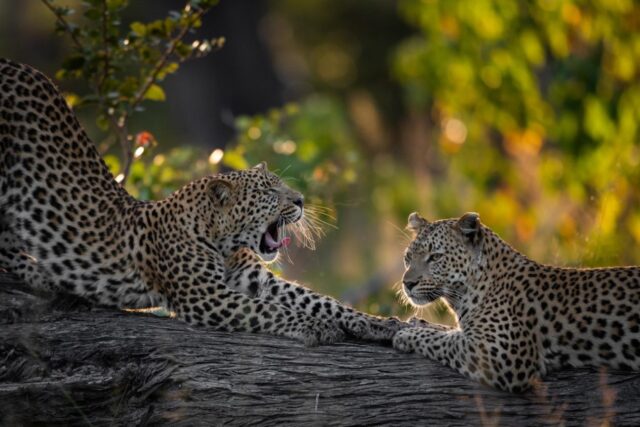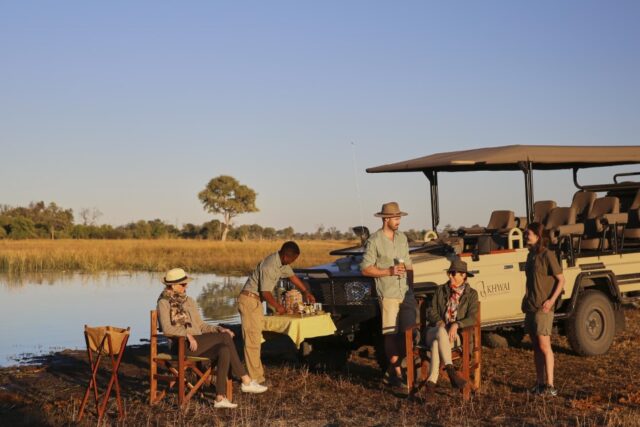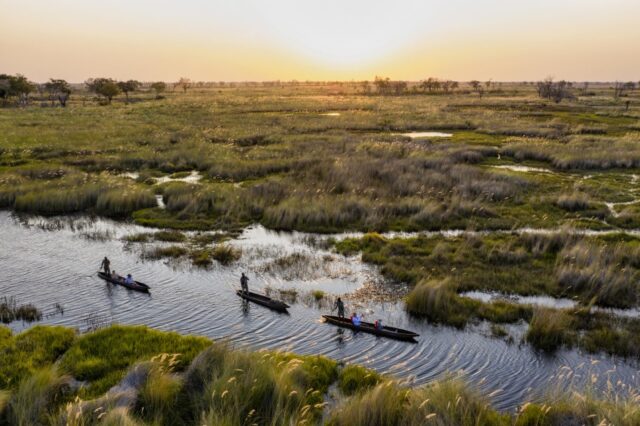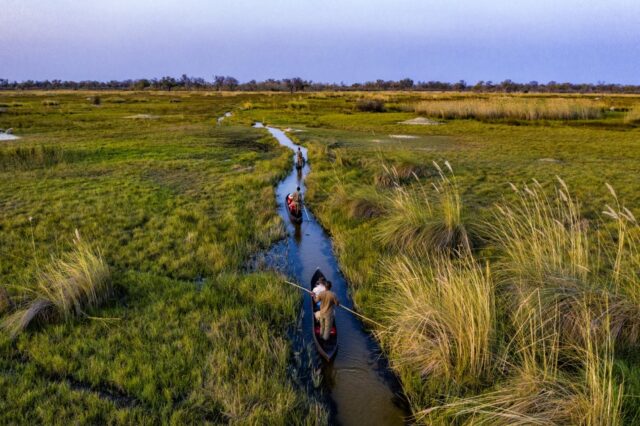Information
If you’ve been forever dreaming of an iconic Okavango Delta experience, then end your search with Tuludi. The camp is located in the Khwai Private Reserve, over 200,000 hectares of pristine wilderness, and the landscape is fit for a fairy tale: floodplains stretch as far as the eye can see and the glistening waterways and emerald forests attract all the stars of the safari show.
At Tuludi itself, we wanted to capture the magic of being enfolded in nature and the serenity and space that comes with it. Picture seven, tree-house style rooms, shaded by the boughs of cool leadwood trees, sophisticated interiors that mix the contemporary with the traditional, and airy spaces, dotted with intriguing maps, botanicals and treasures from around the area. The result? An exclusive oasis that you’ll be delighted to return to after a day exploring the extraordinary ecosystem.
The name ‘Tuludi’ is a Tswana word that describes the colours or markings of the leopard, and is also sometimes also used to describe cattle with spotty or flecked skin. It is in fact a ‘royal’ colour or marking that is held in very high regard in Botswana. So, what’s that got to do with our camp? we hear you cry. Well, the day that our partners in Khwai set out to find a spot to build Tuludi, they found themselves camping in a grove of enormous leadwood trees. With their low-hanging boughs and shady leaves the trees are first choice for leopards and lo and behold, a beautiful female walked straight past the team after only a few minutes. Later, as the sun began to drop, the rays created a stunning, dappled ‘tuludi’ pattern on the ground all around them – and it was at that moment that they knew this was the spot for Tuludi.
In the winter dry season from June to October, the Okavango Delta is in flood. The rivers and waterways are full and flowing making this the best time of year for water-based game viewing from traditional mokoros and boats.
The summer season brings the much-longed-for rains and alongside mind-bogglingly beautiful sunsets and thunderstorms, you’ll notice plenty of newborns springing around the plains. Birding at this time of year is also excellent as the migrants return from their various corners of the globe.
Seasonality
Green season: 10th January to 31st March
Shoulder season: 1st April to 14th June; 1st November 9th January
High season: 15th June to 31st July; 1st September to 31st October
Peak season: 1st – 31st August
Rooms
Tuludi Family Tent – Room
Luxury Family Unit consisting of 2 bedrooms and 2 bathrooms, accommodating 2 adults and up to 3 children. Inside, the earthy palette is sophisticated and warm and you’ll find separate dressing and sleeping areas, an en-suite bathroom.
Tuludi Twin Tent – 6 Rooms
Twin tented luxury accommodation, maximum 2 adults. Inside, the earthy palette is sophisticated and warm. You’ll find separate dressing and sleeping areas, an en-suite bathroom, indoor and outdoor showers, a bathtub and plunge pool.
Facilities
The raised main area overlooks the iconic Delta floodplains with plenty of chairs and sofas to relax in. There is a separate dining area, firepit, large swimming pool and a treehouse library, 4 metres off the ground in the boughs of the trees. The camp is solar-powered.
Activities
Game Drives
Enjoy morning/ afternoon/ sun-downer or evening night drives through the private concession.
Mokoros
Drifting silently through lily pads on a mokoro safari is one of the greatest pleasures of a water-based safari. Enabling you to reach all the corners of the Delta that a vehicle simply can’t reach, this cruise makes for a peaceful and insightful view of the reed-filled water channels. Please note that this activity is dependent on the water levels.
Boating
With a higher vantage point than the mokoro, this alternative water-based activity lets you float along the waterways and rivers on a boat watching wildlife wandering alongside. This activity is dependent on water levels.
Walking Safaris
Accompanied by a guide, you have the opportunity to walk in the concession looking at the finer details of the Delta’s flora and fauna.















